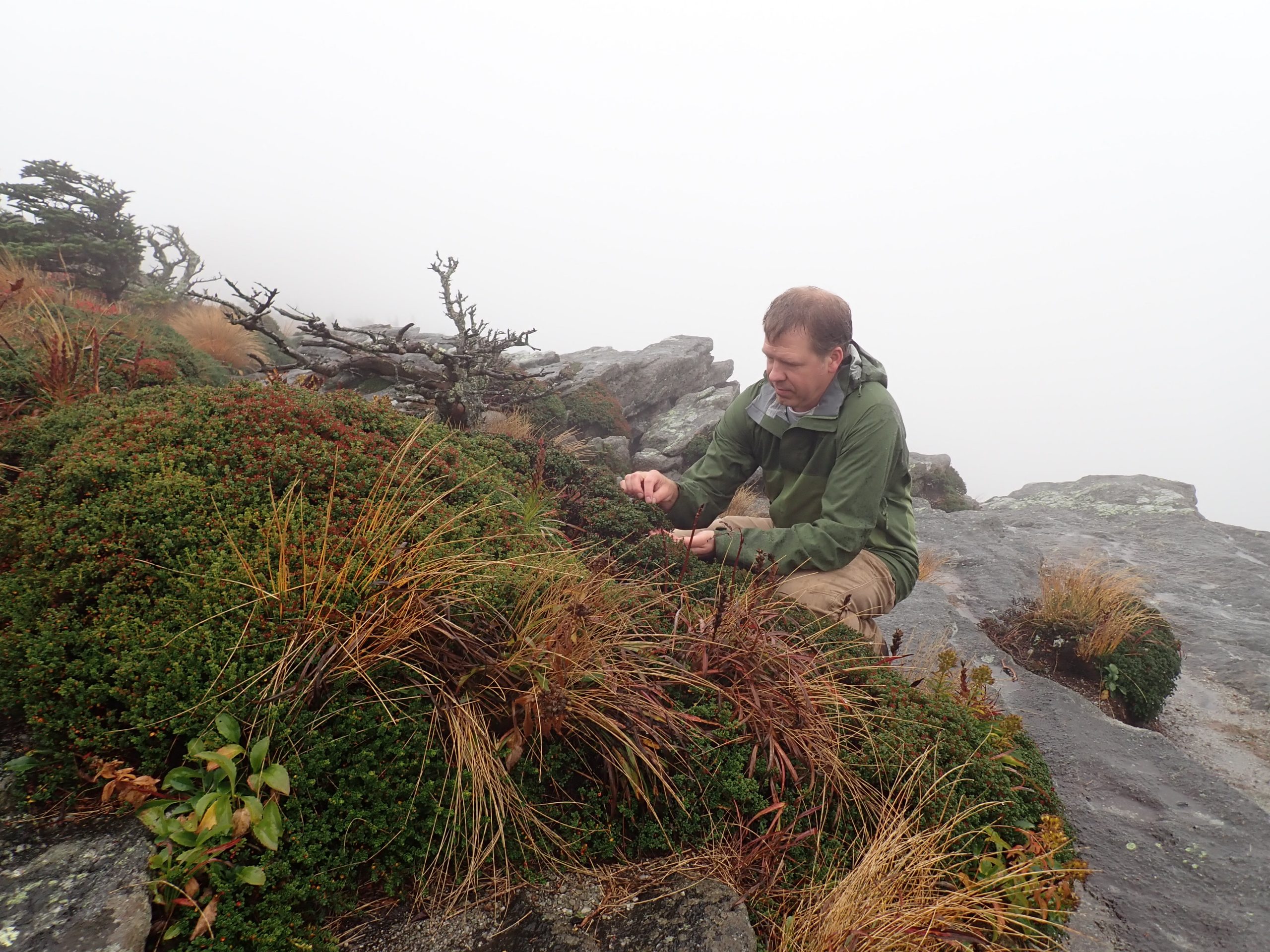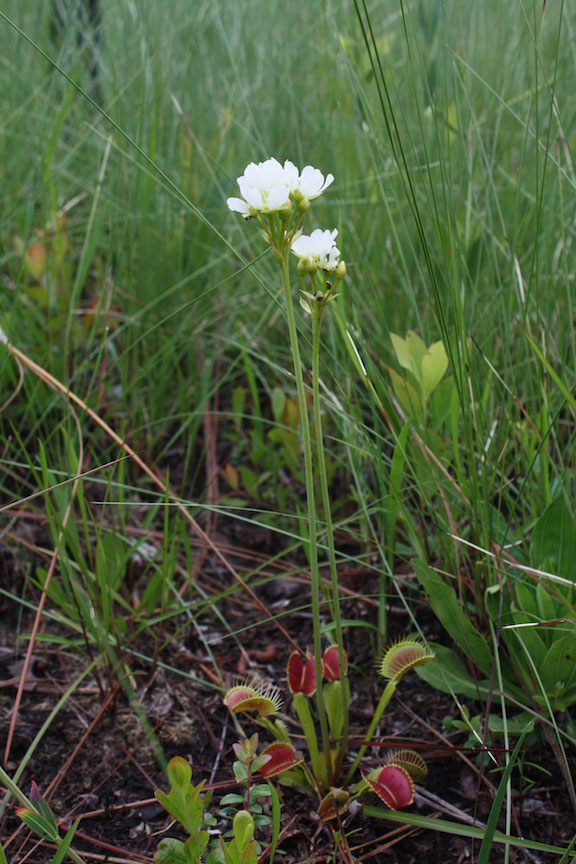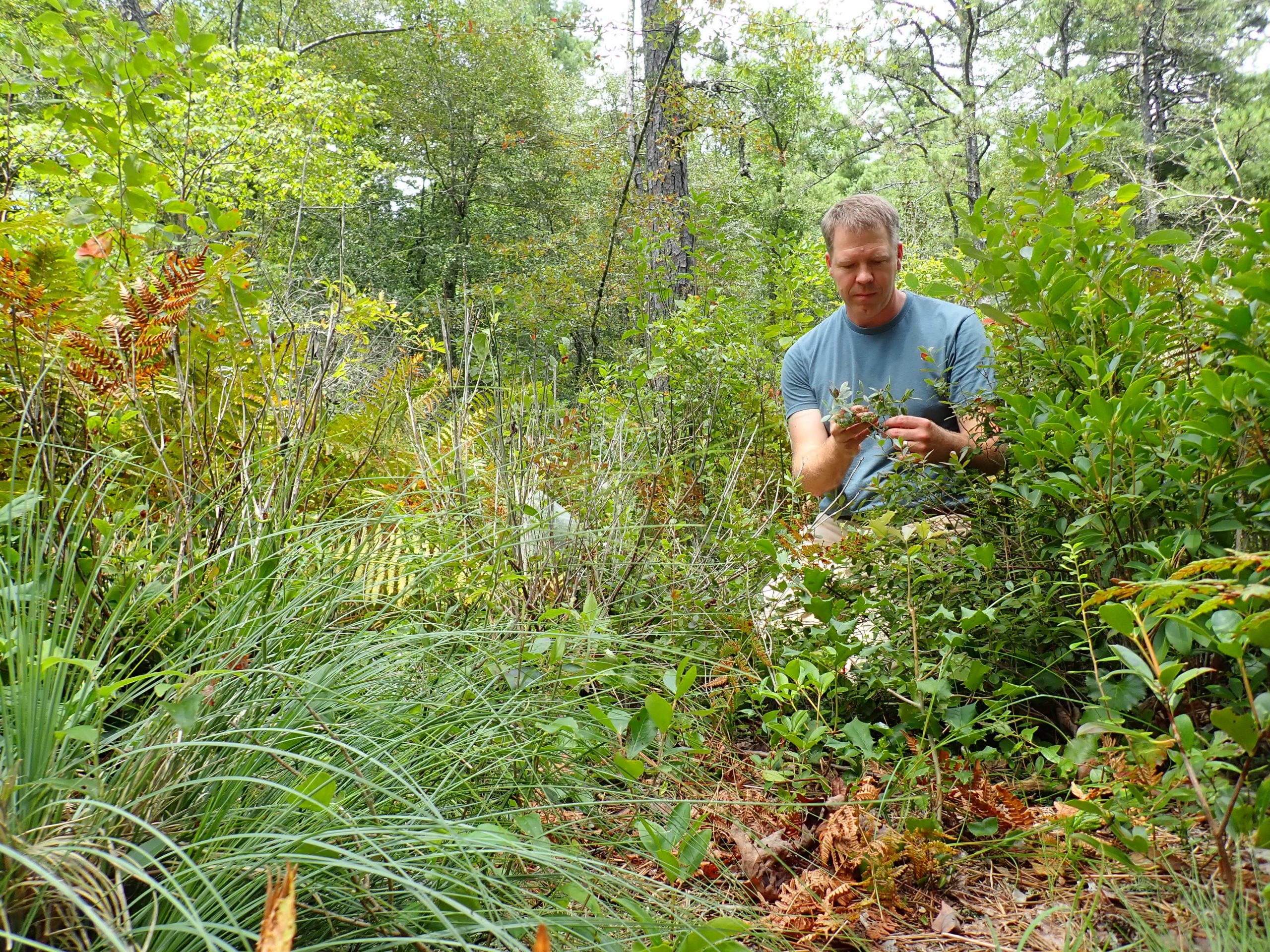Michael Kunz
Our October Conservation Champion, Michael Kunz, brings his love of nature and plant ecology to his role as Director of Conservation Programs at the North Carolina Botanical Garden. A long-time CPC Conservation Partner, Mike has been instrumental in the stewardship of rare species in the Southeast, including several imperiled carnivorous plants. His dedication and leadership continue to advance our shared mission to protect biodiversity, ensuring these unique and vital plants are preserved for future generations. Mike’s work exemplifies the critical role of engagement and collaboration in preventing plant extinction and safeguarding our planet’s natural heritage. As Mike shares, “The more we build a society that values plants at all levels, the more likely we are to advocate for their conservation.”
When did you first fall in love with plants?
Plants were part of my life pretty early. I gardened with my mom and we spent a lot of time camping and hiking in the Colorado Rockies, often stopping to admire wildflowers and examine the trees. But it was a general botany course at the University of Colorado, Boulder where I really realized how much I loved plant ecology. Every part of that class really connected with me and I found something I was very passionate about.
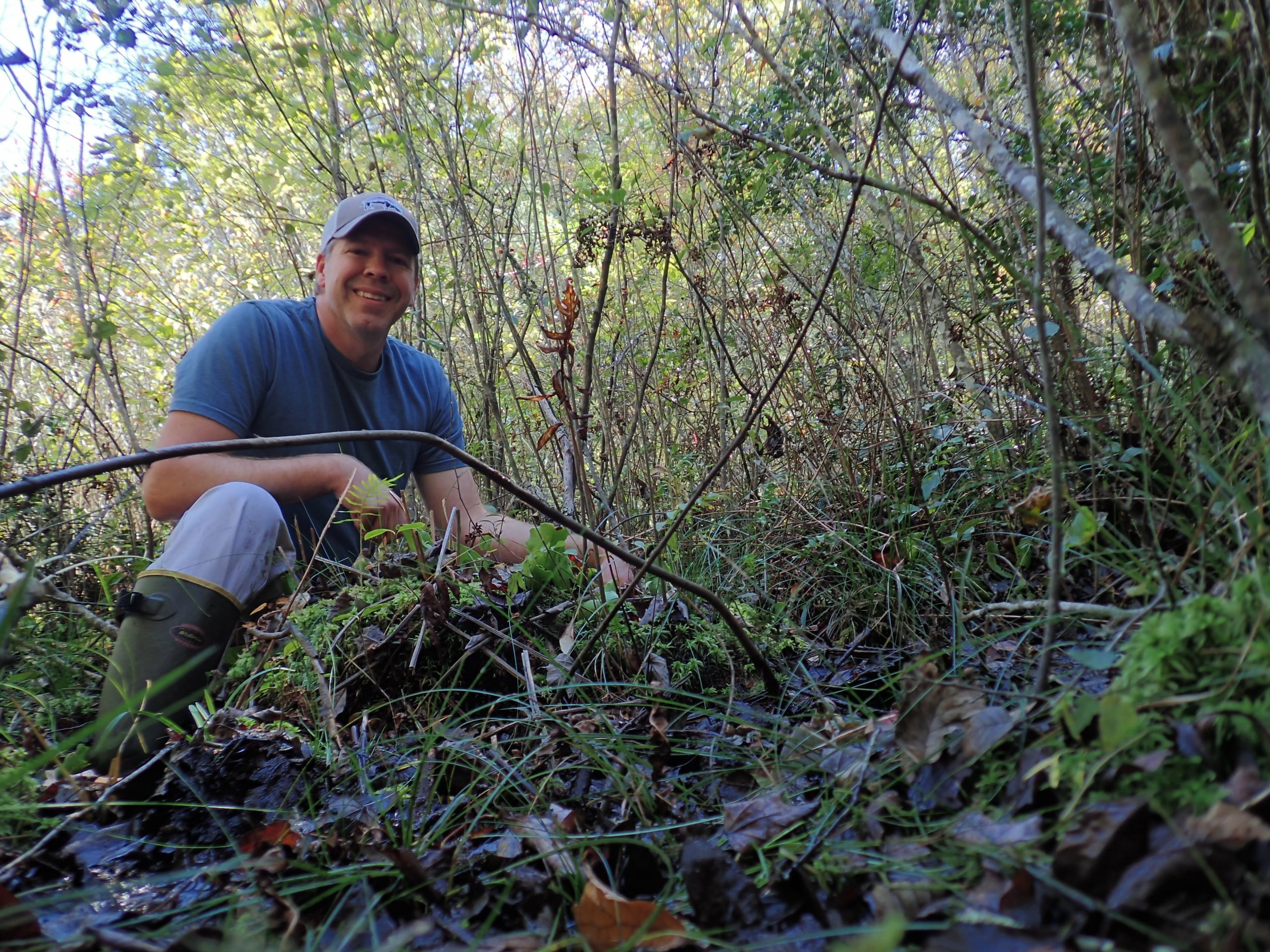
What was your career path to your career at North Carolina Botanical Garden?
After my botany course I started looking for any job I could find that was plant related. I sorted tundra plants for researchers, volunteered for invasive species pulls, worked for county extensions, conducted research in desert grasslands of Arizona – the list goes on and on. After a short stint as a high school teacher, I moved to North Carolina and started at NCBG as an ecologist. My path there also drifted from land stewardship to rare plant conservation. I was lucky enough to have a supportive environment to allow me to grow and do more rare plant work, eventually leading to my PhD program (Environment, Ecology and Energy Program, University of North Carolina at Chapel Hill) and becoming the Director of Conservation at NCBG.
Based on your experience, what are some of the pressing conservation needs impacting imperiled plants, including carnivorous plant species, in North Carolina and the Southeastern U.S.? How has your (or your institution’s) work addressed them?
Land use changes, including direct loss of habitat, and fire suppression are two of the biggest threats to many species in the Southeast, including carnivorous plants. On top of this, I am a firm believer in that we need to know how these changes, and those associated with climate change and management decisions, are actually impacting populations and species. For many rare species, we don’t actually know how species are responding to this rapid global change and until we do, finding ways to balance societal and ecological needs is really difficult. This is all very true for carnivorous plants in the Southeast where land continues to be converted into development and agriculture, hydrology is changing, and people and climate change are altering the fire regime.
What conservation projects are you currently working on? What successes or challenges have you encountered in your work?
A new project we are a part of is looking at how Venus flytrap populations are likely to respond to changing climate and fire factors and translating the results to partners so they are better equipped to manage flytraps and other rare species in the future. This is a collaboration with Kansas State University and Duke University with funding from the National Science Foundation and the Paul G. Allen Family Foundation’s Partnership to Advance Conservation Science and Practice. This is a great collaboration that allows all the partners to continue advancing our knowledge and conservation action to help plant conservation.
What has surprised you about working with and learning more about rare plants?
For me, one of the biggest challenges is how little we know about so many rare plants and how little material we have to work with to follow best practices. But this is also one of the things that keeps me engaged and working to fight extinction. Even in the smallest number of plants we can deepen our understanding of these intricate connections.
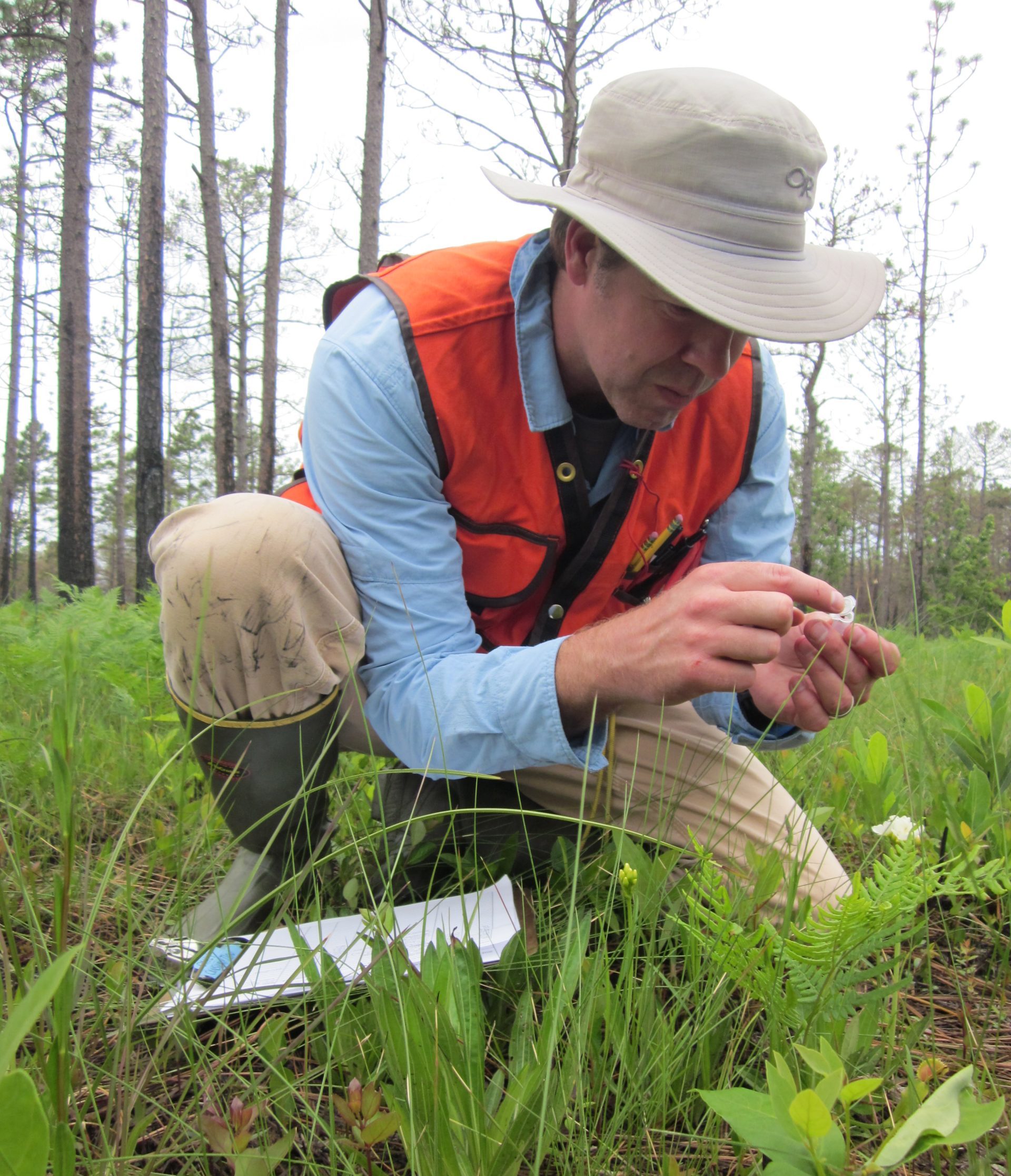
What advice would you give to those who wish to learn more about how they can help save imperiled plant species?
Visit and support botanical gardens and reach out to local conservation organizations – there is a wealth of expertise in these networks. I also think one of the best ways to do more to save plants is to help a diversity of people find their own unique way to connect to a plant, any plant. The more we build a society that values plants at all levels, the more likely we are to advocate for their conservation. So, teach a friend anything cool about a plant and be willing to listen when they tell you their plant stories.
